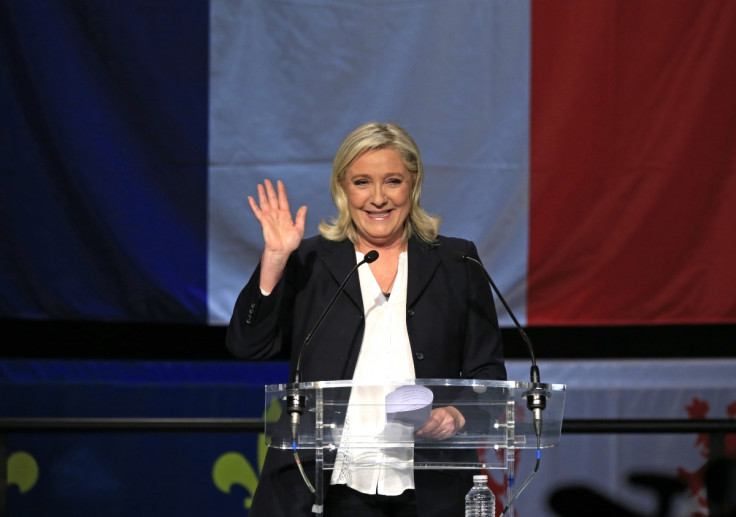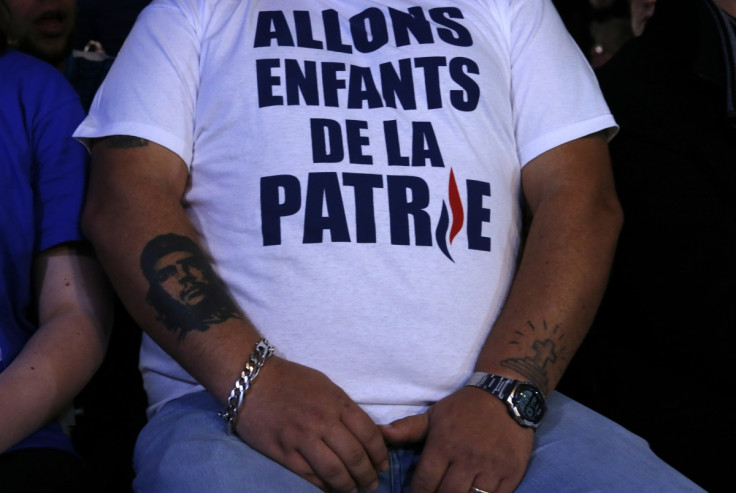France regional elections 2015: Far-right Front National polls first with anti-immigration ticket

France's anti-immigration, anti-EU far-right Front National (FN) has made record gains in the first round of regional elections on Sunday (6 December). FN won over 30% of the vote in the first test of public opinion since the 13 November terrorist attacks that killed 130 people in Paris.
FN came ahead of former president Nicolas Sarkozy's conservative Les Républicains party, with polled 27% of the national vote. President François Hollande's ruling Parti Socialiste came third, securing 22.7% according to final estimates from the interior ministry.
Record gains
FN polled ahead in at least 6 out of 13 regions in mainland France, with leader Marine Le Pen winning in the Nord-Pas-de-Calais-Picardie in the north. Le Pen's 25-year-old niece, Marion Marechal-Le Pen, also shattered previous records for the party as she gained more than 40% in the Provence-Alpes-Côte-d'Azur (PACA), in the south-east.
Welcoming "the magnificent result", Marine Le Pen said it proved the FN was "without contest the first party of France". If confirmed in the run-off next Sunday (13 December), the result could be sufficient for the FN to win up to four regions, the party's best result since it was founded in 1972 by father Jean-Marie Le Pen.
This is the first vote since since France's 22 regions were combined into just 13 super regions. Real power is at stake, as regions make regional economic plans, allocate development funds, and oversee a number of key government functions including public transport and the management of public high schools. Regions also determine funding for NGOs and arts and culture initiatives.
In the run-up to the polls, Maréchal-Le Pen pledged to cut subsidies to the Family Planning offices - the French equivalent of Planned Parenthood.

Anti-immigration and economic ticket
The results reflect voter concerns about radical Islam, migration, border controls and national security, but the FN has also played on anger over the stagnant economy and years of double-digit unemployment. Commentators say the polls, which were held under a state of emergency, also show voters have lost faith in mainstream parties, which are seen as not offering any distinguishable programme.
While the governing Socialist party and Conservative opposition have often worked together to block the FN in the past, Les Republicans leader Sarkozy said there would be no "tactical alliances" in the second round. French Socialist Party secretary Jean-Christophe Cambadelis said it was withdrawing from the second round in at least two regions where Le Pen and her niece were leading in order "to block" a run-off victory for the FN.
A launchpad for 2017
Voters in the next round could in theory keep the FN out, but the polls have given Le Pen a springboard for her presidential bid in 2017. She is expected to make the second round run-off vote in the all-important May 2017 elections, where she could face Sarkozy.
Former French President Sarkozy returned to political life in 2014 when he took the reins of his centre-right Les Republicans party (formerly UMP). In his post-election speech, Sarkozy said: "The verdict of the French tonight is clear. The French wish the priority to be on the part of all leaders that the Republic does not go backwards – it has gone backwards too far."
Sarkozy will also hope success in the second-round will give him a springboard to launch his bid to return to the Elysée palace.
© Copyright IBTimes 2024. All rights reserved.






